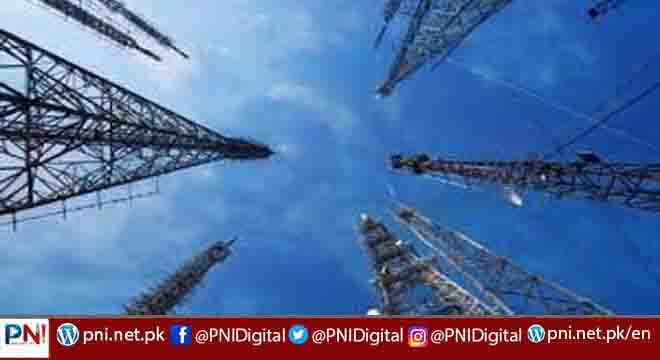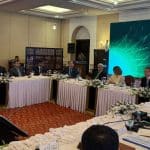ISLAMABAD, Apr 12 (APP): Ministry of Information Technology and Telecommunications is all set to launch Infrastructure Sharing Framework after the cabinet’s approval, Member Telecom Omar Malik said on Wednesday.
Addressing a webinar on “Adopting 5G to Positively Impact Environment: A Roadmap for Pakistan”, he said initiatives like spectrum and infrastructure sharing would play a crucial role in improving connectivity, reducing network disruptions, and lowering environmental impacts.
The webinar was organized by Sustainable Development Policy Institute.
Referring to a study conducted in collaboration with World Bank which revealed optic fibre penetration a key barrier, he said since 2020, the total deployment of fiber optics in Pakistan had increased from 124,000km to 190,000km.
Additionally, economic instability and consumer affordability were among other challenges hindering launch of 5G in the country, he added.
Central Asian Cellular Forum Chairman Khalid Khan said advancement to 3G and 4G had transformational impacts on other sectors including transport, fintech and others.
He emphasized human resources being the top exportable commodity and urged to promote competitive engineering skills to capture potential growth of global IT sector.
Khalid Khan encouraged the government to focus on larger picture of connectivity through supportive policy interventions rather than perceiving them as revenue generating avenues.
VP Network, Jazz Abdul Rehman Usmani stressed that rather than hastening 5G’s launch, the best approach was to develop used cases and sustainable business model to prevent consumers reverting to 4G due to limited utility.
He stressed on developing a conducive ecosystem through R&D centers, regulatory regime, cost-effective spectrum denominated in Pakistani rupee.
SDPI Research Fellow Dr Fareeha Armughan said that 5G would lead to acceleration of modern financial services, cloud computing, AI; with banks already keen to shift to fast, touchless, and easy to use financial services over conventional banking.
“There is no better tool than combining mobile and financial services for looping in the vulnerable communities in the economy and moving the needle on full circle of poverty alleviation,” she added.
Fawad Sarwar, Solutions Architect at Ericsson, Australia highlighted that telecom and IT contributed 1.4% to global greenhouse gas emissions but by 2030, economic and industrial digitalization would have out-sized influence of 50 per cent emissions.
He elucidated that the use of sensors, artificial intelligence and IoT enabled systems could reduce emissions from construction and transport sectors.
He stressed a three-pronged approach of sustainable network evolution, expanding and modernizing it and operating intelligently to break the energy curve and reduce environmental footprint.
SDPI Executive Director Dr Abid Qaiyum Suleri stressed that penetration of one trillion interconnected devices was projected in the future and would increase lithium consumption by four times, and energy demand significantly.
He emphasized new self-energizing and energy harvesting techniques and capturing electro-magnetic waves produced from these interconnected devices through micro-antennas to meet energy demand.
Follow the PNI Facebook page for the latest news and updates.








